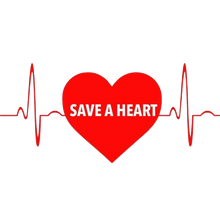WHAT TO DO DURING A
IMPORTANT INFORMATION:
ASA should not be given to someone experiencing a stroke as it could worsen their condition.
Stroke:
Avoid administering ASA. While aspirin is known to thin the blood, it should not be given to a person experiencing a stroke. This is because a stroke can have multiple causes, including a blood clot or a ruptured blood vessel in the brain. Without knowing the underlying cause of the stroke, administering any medication that could exacerbate bleeding should be avoided.
Heart Attack:
Doctors recommend that if an individual experiences signs of a heart attack, to immediately call 911, then chew and swallow 325 mg tablets of ASA. The ASA slows clotting and decreases the size of the forming blood clot, thereby preventing the heart attack from becoming more severe.
Why?
A heart attack and a stroke are two serious and potentially life-threatening conditions that affect the heart and brain, respectively. While they may have some similarities, they are actually quite different and require different treatments.
A heart attack occurs when the blood supply to the heart is blocked, typically by a blood clot. This can cause damage to the heart muscle and may lead to serious complications, such as heart failure. A heart attack is a medical emergency and requires immediate treatment, such as medications to dissolve the blood clot or procedures to open the blocked artery.
On the other hand, a stroke occurs when the blood supply to the brain is disrupted. This can be caused by a blockage, such as a blood clot, or by a rupture of a blood vessel. When the brain does not receive enough blood, it can be damaged, which can lead to serious complications, such as paralysis or speech problems. A stroke is also a medical emergency and requires immediate treatment, such as medications to dissolve the blood clot or procedures to repair the damaged blood vessel.
The first aid treatments for each emergency differ. Taking immediate action can mean the difference between survival and recovery, or death.


